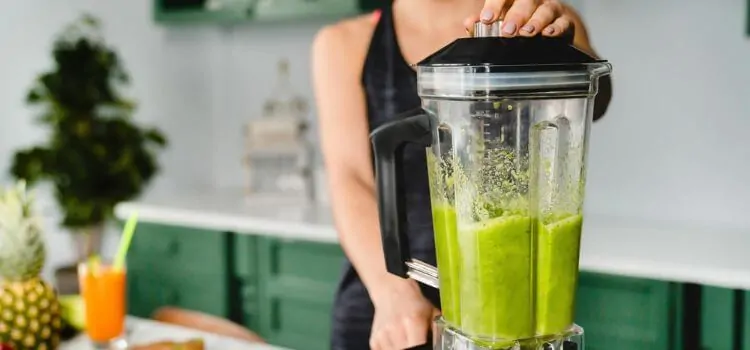What is a Cold Press Juicer? A Comprehensive Guide
What is a Cold Press Juicer? A Comprehensive Guide
Blog Article

Introduction:
In the world of health and wellness, cold press juicers have gained immense popularity for their ability to deliver nutrient-rich, flavorful juices. But what exactly is a cold press juicer, and how does it differ from traditional juicers? In this detailed guide, we uncover the technology, benefits, comparisons, and tips for choosing the best cold press juicer for your lifestyle.
What Is a Cold Press Juicer?
A cold press juicer, also known as a masticating juicer, is a type of juicing machine that uses a slow, grinding method to extract juice from fruits, vegetables, leafy greens, and even nuts. Unlike traditional centrifugal juicers that operate at high speeds and generate heat, cold press juicers operate at low RPM (revolutions per minute)—usually under 100 RPM—to preserve enzymes, vitamins, and antioxidants.
The key mechanism involves crushing and pressing produce through a slow auger or twin gears to squeeze out the juice, separating it from the fiber. This slow and steady process ensures minimal oxidation and a longer shelf life for the juice.
How Does a Cold Press Juicer Work?
The cold press juicer follows a two-step juicing process:
Crushing: Fruits and vegetables are slowly crushed by an auger or gear, which breaks down the produce without heat or friction.
Pressing: The crushed pulp is then squeezed under pressure to extract juice, leaving dry pulp behind.
Because there’s no heat involved, this method is referred to as cold press—preserving the integrity of nutrients and enzymes often destroyed in high-speed juicing.
Cold Press Juicer vs. Centrifugal Juicer
Juicing Speed
Cold Press Juicer: Operates slowly (60–110 RPM), ideal for preserving nutrients.
Centrifugal Juicer: Operates quickly (up to 15,000 RPM), but generates heat and air.
Nutrient Retention
Cold Press Juicer: High retention of vitamins A, C, E, and enzymes.
Centrifugal Juicer: Nutrient loss due to oxidation and heat.
Juice Shelf Life
Cold Press Juicer: Up to 72 hours refrigerated.
Centrifugal Juicer: Best consumed within 24 hours.
Juice Yield
Cold Press Juicer: Higher yield, especially for leafy greens.
Centrifugal Juicer: Lower yield, especially with fibrous or soft produce.
Noise Level
Cold Press Juicer: Quiet operation.
Centrifugal Juicer: Noisy due to high-speed motor.
Health Benefits of Cold Press Juice
1. Maximum Nutrient Absorption
Cold press juicers produce juice that is rich in vitamins, minerals, and phytonutrients, offering a more potent health boost than traditional methods.
2. Boosted Immunity
With higher levels of antioxidants and enzymes, cold press juices help strengthen the immune system and protect against oxidative stress.
3. Improved Digestion
Cold press juice contains soluble fiber and active enzymes that support gut health and enhance digestion.
4. Natural Detoxification
Cold-pressed juices are ideal for cleansing toxins from the liver and bloodstream, making them a preferred choice for detox regimens.
5. Better Hydration
With no added sugar or preservatives, cold press juice offers a natural and refreshing way to stay hydrated.
Top Produce for Cold Press Juicing
Cold press juicers excel with a wide variety of produce:
Leafy Greens: Spinach, kale, wheatgrass, mint
Citrus Fruits: Oranges, lemons, grapefruits
Hard Vegetables: Carrots, beets, celery
Soft Fruits: Berries, grapes, kiwis
Nuts & Seeds: Almonds (for nut milk), sunflower seeds
Types of Cold Press Juicers
Single Auger (Horizontal)
Great for leafy greens
Multipurpose: can make pasta, sorbet, nut butters
Compact, easy to clean
Vertical Cold Press Juicers
Space-saving design
Efficient juice extraction
Suitable for all types of produce
Twin Gear (Triturating)
Dual gears crush and press for maximum yield
Ideal for committed juicers
Higher price range, but unmatched performance
What to Look for When Buying a Cold Press Juicer
1. Juice Yield
Look for models that extract maximum juice with minimal waste—especially for greens and hard veggies.
2. Pulp Ejection
External pulp ejection makes continuous juicing easier and saves time during cleanup.
3. Motor Power
A powerful but slow motor (around 150–250 watts) ensures better grinding without overheating.
4. Material Quality
Choose juicers with BPA-free, food-grade plastic or stainless steel components for safety and durability.
5. Ease of Cleaning
Removable parts and dishwasher-safe components are essential for hassle-free maintenance.
6. Warranty and Support
A good warranty reflects the manufacturer’s confidence in the product and ensures long-term value.
Cold Press Juicer Maintenance Tips
Clean immediately after use to avoid pulp buildup.
Use the provided brush to scrub mesh filters and augers.
Soak parts in warm water with vinegar or lemon juice for deep cleaning.
Avoid harsh detergents to preserve plastic components.
Are Cold Press Juicers Worth It?
Absolutely. If your goal is to maximize nutritional intake, reduce waste, and enjoy pure, fresh juice, investing in a cold press juicer is a smart choice. While they come with a higher upfront cost, the long-term health benefits and savings on bottled juices easily outweigh the investment.
Final Thoughts
Cold press juicers redefine the juicing experience by offering nutrient-rich, flavorful, and longer-lasting juices. Whether you're a health-conscious individual or a culinary enthusiast, owning a cold press juicer empowers you to take full control of your nutrition. From detox plans to breakfast routines, this powerful appliance fits seamlessly into every lifestyle.
Buy most selling cold press website jucer: https://vongkitchen.com/what-is-a-cold-press-juicer/
Report this page